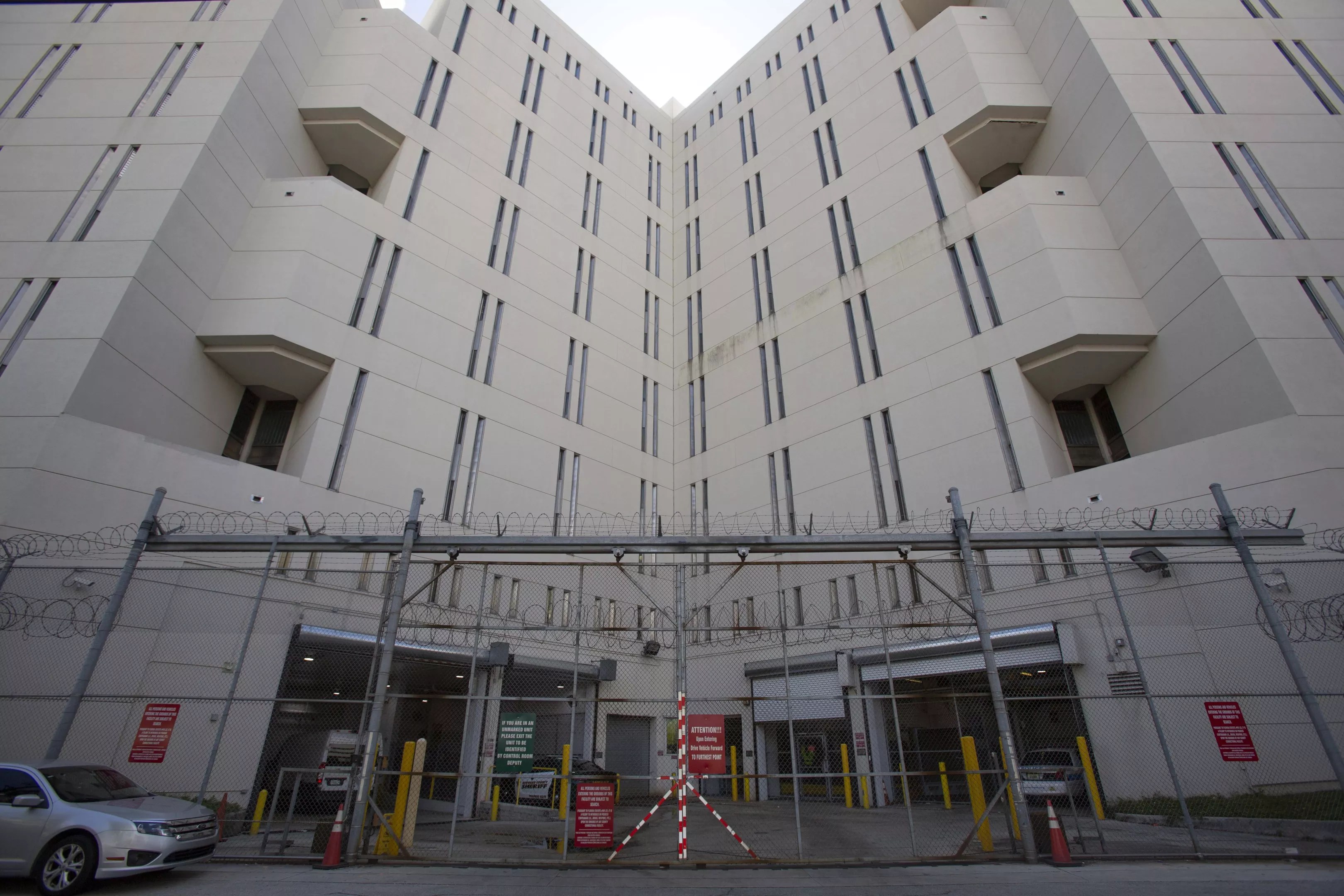
Photo by Saul Martinez/Getty

Audio By Carbonatix
When businesses began shutting down and residents started sheltering at home at the onset of COVID-19 last year, Todd Watson was running a fever and showing flu-like symptoms while being booked into a Broward County jail. Through the intake process, he sat in a room with some 15 people and spent the night in a different unit with about two dozen others.
Social distancing was impossible. Masks weren’t made available for those who were incarcerated. On behalf of Watson and other inmates, the American Civil Liberties Union and Disability Rights Florida filed a federal class-action civil-rights lawsuit against Broward County Sheriff Gregory Tony this past June, arguing that conditions in the jails he’s in charge of overseeing were putting people at risk of severe illness or death.
Last week, U.S. District Judge William P. Dimitrouleas officially signed off on a settlement agreement reached by the parties in December. The past several months provided a period during which members of the class action could file objections to the terms of the agreement with the court, but with Dimitrouleas’ signing off of the settlement, the case is now closed.
In a press release yesterday, the ACLU of Florida declared victory in its effort to keep incarcerated people safe against COVID.
“This pandemic has been raging for a year now, and we are relieved and thankful that the court approved our settlement agreement,” Jackie Azis, a staff attorney with ACLU of Florida, tells New Times. “Our plaintiffs and the class members should have been protected from this pandemic all along, and we finally have the court order, which is affirming those protections in our settlement agreement.”
The lawsuit alleged that Broward jails lacked appropriate COVID-19 testing, screening, education, isolation, treatment, and other safety protocols. The suit also sought the release of medically vulnerable inmates.
Per the settlement agreement, the sheriff agreed to implement the following policies, among others: (*Note to Tom: You can’t see the bullets in the new Foundation update, but they’re there if you preview)
- Conducting temperature checks and COVID symptom checks during the booking process
- Maintaining at least six feet of distance in intake holding cells and other areas where newly admitted people are held
- Prominently displaying information about COVID and how to stop the spread
- Identifying everyone who is vulnerable to serious injury or death if they become infected with the virus
- Creating a housing plan that would allow inmates to remain six feet apart in their cells and in common areas
- Housing people who test positive for COVID in medical isolation
- Restricting transfers of incarcerated people from other jurisdictions
- Creating COVID testing protocols for inmates and staff
- Providing sufficient soap, disinfectant, cleaning supplies, masks, and other personal protective equipment to inmates and staff
- Tracking and reporting statistics about infections among incarcerated people and staff, positive and negative test results, total jail populations, and new admissions
In court documents, Sheriff Tony claimed many of the policies had already been implemented prior to the lawsuit being filed.
Now that the case has been settled, the ACLU and Disability Rights Florida are advocating for the Broward Sheriff’s Office to expand its vaccination program to the county’s jail population.
“Even though there are available vaccines, many vaccination sites in Broward have been shutting down because the public is not using them,” the organizations said in a press release. “Still, people in jails in Broward County have almost no access to vaccines despite the high risk of exposure and the alarming rise of variants in Florida.”
According to vaccination reports Tony filed with the court, the Broward Sheriff’s Office has administered the single-dose Johnson & Johnson vaccine to about 650 incarcerated people. The ACLU says Broward jails are housing about 3,500 inmates.
Vaccine supply is determined by the Broward County Department of Health, the sheriff’s court filings say. A mass vaccination effort was underway in Broward jails this week and ends today.
“An estimated 20% of the total inmate jail population not already vaccinated is anticipated to accept the vaccine,” Tony stated in a recent court document. “Should acceptance numbers exceed that estimate, additional vaccine doses are readily available and deliverable to the vaccination team within an hour.”
Azis, the ACLU attorney, says the organization believes the sheriff should continue the vaccination effort, inform inmates about the efficacy and safety of the vaccines, and have medical professionals available to answer questions incarcerated people may have.
“The vaccination initiative that the sheriff is undertaking until [today] will not be sufficient to protect those in custody,” Azis says. “We hope the sheriff will continue to educate those in custody about the benefits of the vaccine.”